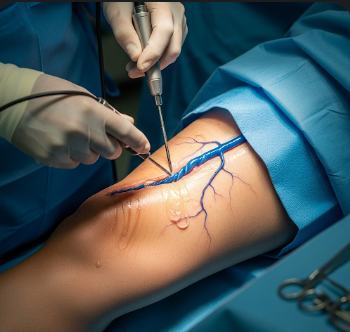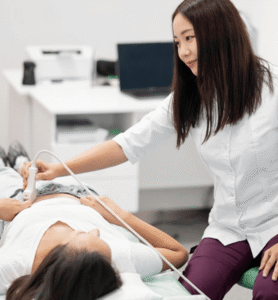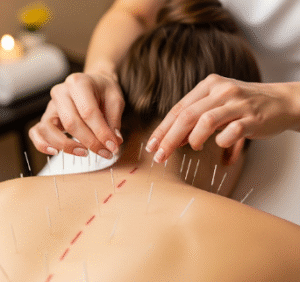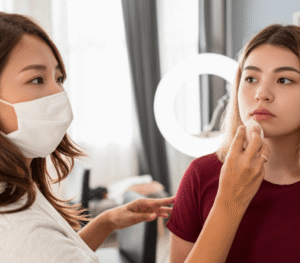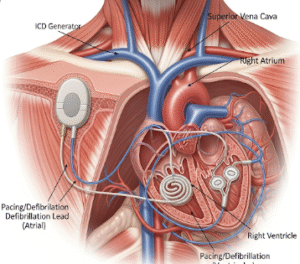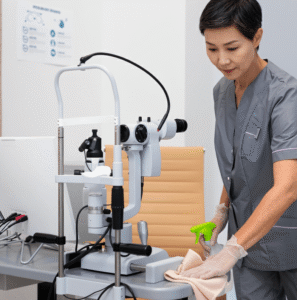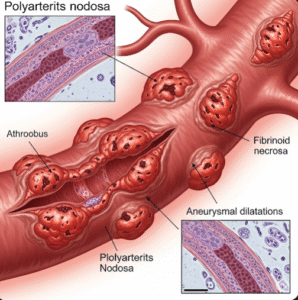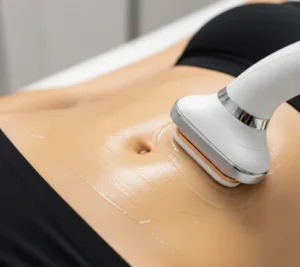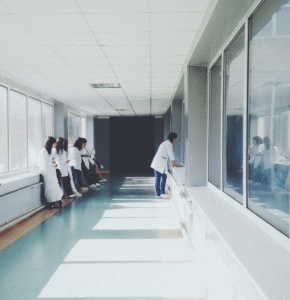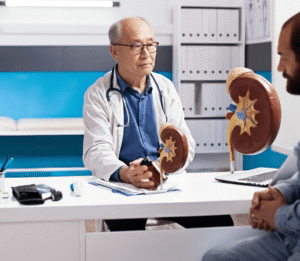Overview
Varicose veins surgery is a medical procedure designed to treat enlarged, twisted veins in the legs, which occur due to weakened or damaged vein valves. These veins often cause pain, swelling, heaviness, fatigue, and cosmetic concerns, and if untreated, can lead to skin changes, ulcers, or blood clots.
South Korea is a leading destination for advanced varicose veins treatments, offering minimally invasive surgical techniques, laser and radiofrequency therapies, and highly skilled vascular surgeons. Patients benefit from quick recovery, reduced pain, and excellent cosmetic outcomes.
Varicose veins surgery is typically recommended when:
- ➤ Conservative treatments like compression stockings, lifestyle changes, or medications fail
- ➤ Veins cause chronic pain, swelling, or fatigue
- ➤ Skin changes like eczema, pigmentation, or ulcers appear
- ➤ Cosmetic concerns affect self-esteem or lifestyle
What is Varicose Veins Surgery?
Varicose veins surgery refers to procedures that remove, close, or shrink varicose veins to restore healthy blood flow in the legs. The choice of procedure depends on severity, vein location, and patient health.
Types of varicose vein surgery:
- ➤ Endovenous Laser Ablation (EVLA): A laser fiber inserted into the vein heats and closes it
- ➤ Radiofrequency Ablation (RFA): Radiofrequency energy is used to shrink and seal the vein
- ➤ Phlebectomy: Tiny incisions allow the removal of surface varicose veins
- ➤ Sclerotherapy: A chemical solution is injected to close small varicose veins
- ➤ Vein ligation and stripping: Surgical removal of large varicose veins (traditional method)
Korean hospitals specialize in minimally invasive methods such as EVLA, RFA, and micro-phlebectomy, which reduce scarring, pain, and recovery time.
What are the Benefits?
✔ Relieves pain, swelling, and heaviness in the legs
✔ Prevents progression of venous disease
✔ Minimally invasive options with faster recovery
✔ Improves cosmetic appearance
✔ Reduces risk of ulcers, skin changes, and blood clots
✔ Advanced technology in Korea ensures precise treatment and minimal complications
Procedure Details:
1) How should I prepare for Varicose Veins Surgery?
- ● Preoperative evaluation: Duplex ultrasound to map vein anatomy and assess blood flow
- ● Medication review: Blood thinners or anticoagulants may need temporary adjustment
- ● Fasting: Required for procedures under general anesthesia; minimal restrictions for local anesthesia
- ● Compression stockings: May be advised pre- and post-procedure to reduce swelling
- ● Korean hospitals: Provide multilingual preoperative counseling, vein mapping, and detailed care instructions
2) What happens during Varicose Veins Surgery?
- ➤ Anesthesia: Local, regional, or general anesthesia depending on the procedure
- ➤ Vein access: For EVLA or RFA, a catheter is inserted into the affected vein under ultrasound guidance
- ➤ Treatment:
- EVLA uses laser energy to seal the vein
- RFA applies radiofrequency energy to close the vein
- Phlebectomy removes surface varicose veins through tiny incisions
- Sclerotherapy injects a chemical agent to collapse small veins
- ➤ Duration: 30–90 minutes depending on the procedure and number of veins treated
- ➤ Korean advantage: Hospitals use high-definition ultrasound, precision lasers, and minimally invasive tools for safe and effective vein closure
3) What happens after Varicose Veins Surgery?
- ● Recovery: Most patients go home the same day; mild discomfort managed with oral pain relievers
- ● Compression therapy: Graduated compression stockings are worn for 1–2 weeks to improve circulation and reduce swelling
- ● Activity: Walking is encouraged immediately; avoid heavy exercise for 1–2 weeks
- ● Follow-up: Ultrasound may be performed to ensure treated veins remain closed
- ● Korean hospitals: Provide structured post-operative care, physiotherapy, and multilingual guidance
Risks / Benefits
✔ Benefits:
- ✦ Relief of symptoms like pain, swelling, and heaviness
- ✦ Minimally invasive procedures with excellent cosmetic results
- ✦ Short hospital stay and fast return to normal activities
- ✦ Prevents complications like ulcers, blood clots, and skin changes
⚠ Possible Risks (rare):
- ➔ Bruising or swelling at the treatment site
- ➔ Mild nerve irritation or numbness
- ➔ Blood clots (rare with minimally invasive procedures)
- ➔ Infection (rare)
- ➔ Skin burns or pigmentation changes with laser or RFA
Recovery and Outlook
- ➤ Immediate recovery: Walking is encouraged immediately after surgery to improve blood flow
- ➤ Pain management: Mild pain and soreness typically resolve within a few days
- ➤ Return to activities: Most patients resume normal daily activities within 1 week; vigorous exercise within 2–3 weeks
- ➤ Long-term outlook: Minimally invasive procedures have high success rates, often >90% vein closure, and significantly reduce recurrence risk
- ➤ Korean advantage: Use of state-of-the-art laser and radiofrequency technology ensures fast, safe, and effective recovery
When To Call the Doctor
Patients should contact their doctor if they experience:
- ⚠ Severe pain or swelling
- ⚠ Redness, warmth, or signs of infection at incision or treatment site
- ⚠ Persistent bleeding or hematoma
- ⚠ Shortness of breath or leg pain/swelling suggestive of blood clot
- ⚠ New varicose veins or recurrence
Best Korea Option / Process
South Korea is a top destination for varicose veins surgery due to:
- 🌟 Expert vascular surgeons specializing in minimally invasive techniques
- 🌟 High-definition ultrasound-guided EVLA and RFA
- 🌟 Micro-phlebectomy and advanced sclerotherapy for cosmetic and functional results
- 🌟 Multilingual support and care for international patients
- 🌟 Comprehensive follow-up programs to monitor vein health and prevent recurrence
Top Korean Hospitals for Varicose Veins Surgery:
- ✅ Seoul National University Hospital (Vascular Surgery Dept.)
- ✅ Asan Medical Center
- ✅ Samsung Medical Center
- ✅ Severance Hospital (Yonsei University)
- ✅ Bundang CHA Hospital (Advanced Vascular Center)
✅ Quick Highlights Recap
- ➤ Treats enlarged, twisted veins causing pain, swelling, and cosmetic concerns
- ➤ Minimally invasive procedures with laser, radiofrequency, or phlebectomy
- ➤ Fast recovery, outpatient-friendly, and highly effective
- ➤ Rare risks, mostly manageable under expert care
- ➤ Korean hospitals provide cutting-edge technology, expert surgeons, and structured follow-up

